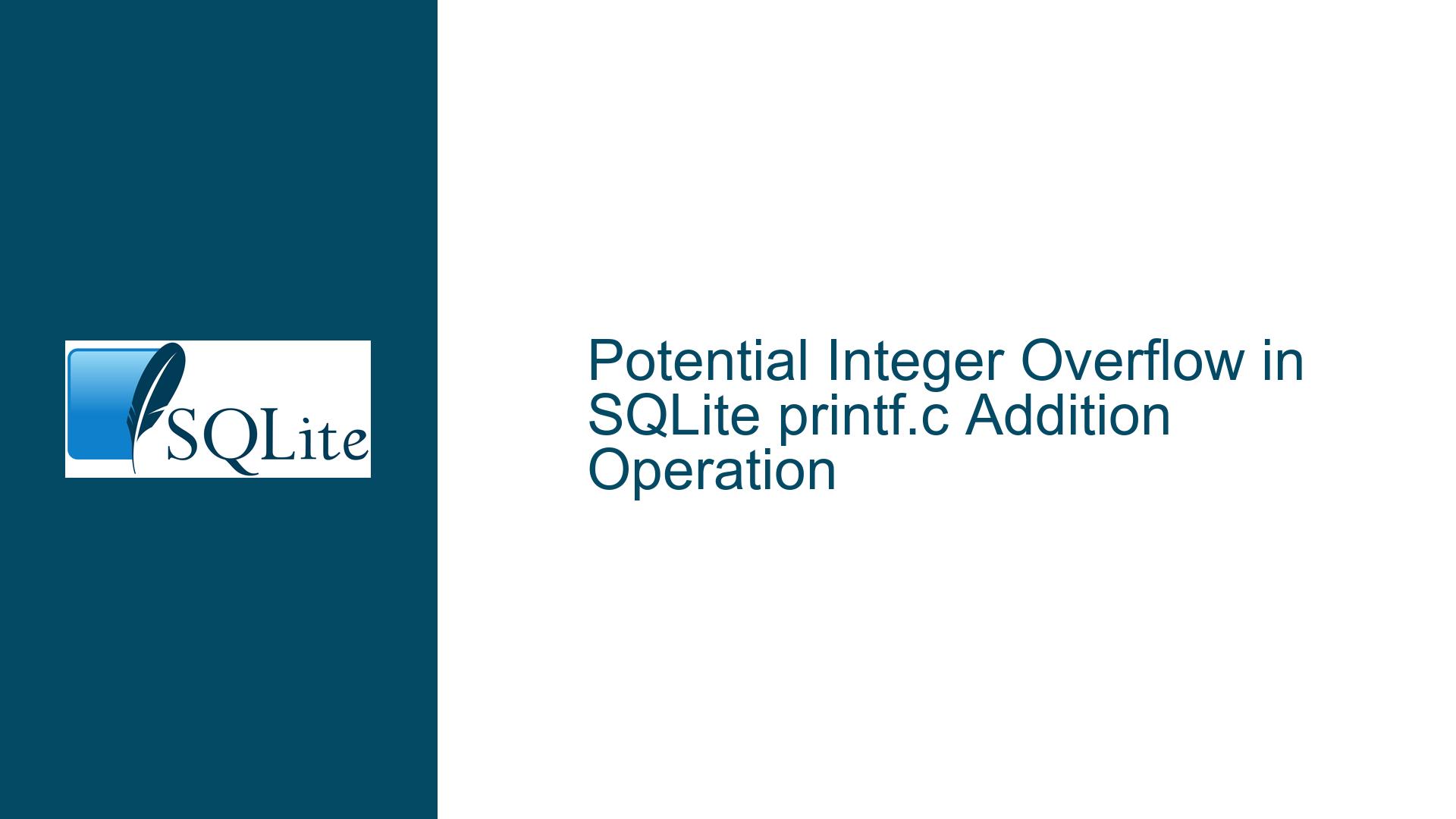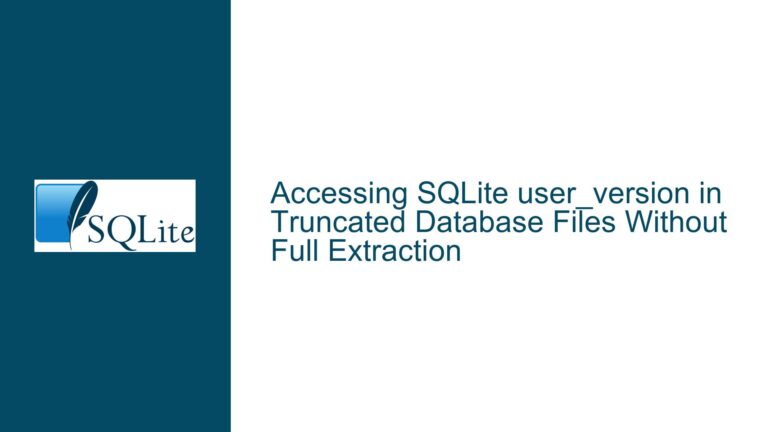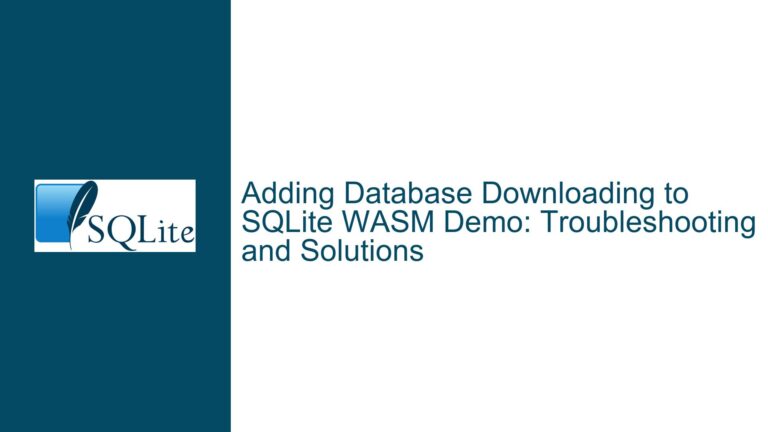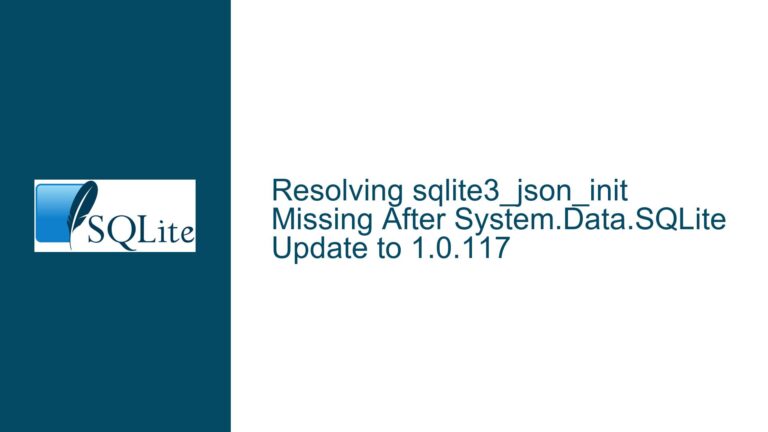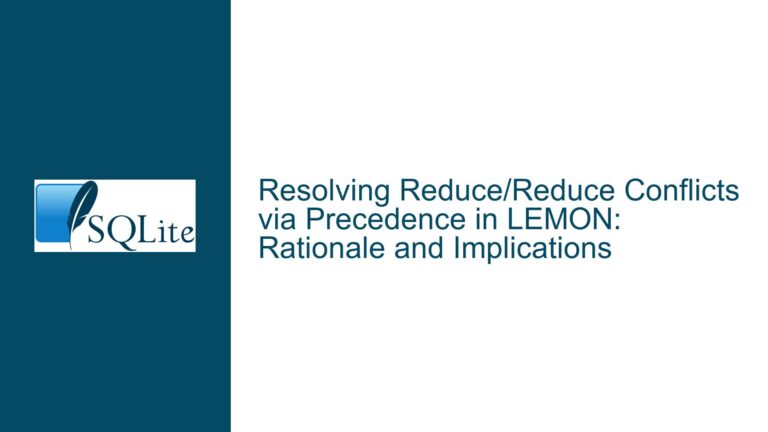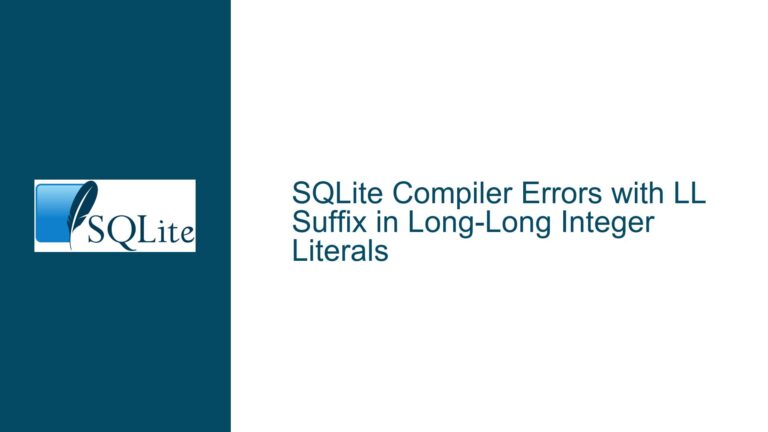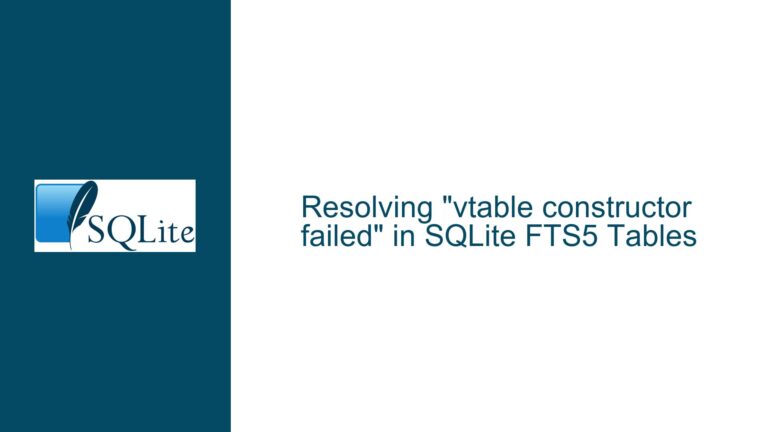Potential Integer Overflow in SQLite printf.c Addition Operation
Integer Overflow Risk in SQLite’s printf.c During String Size Calculation
In SQLite’s printf.c file, specifically at the line where the size of a new string buffer is calculated, there exists a potential risk of integer overflow. The operation in question is szNew += N + 1;, where szNew is the current size of the buffer, and N is the length of the string to be appended. The concern arises when N is close to the maximum value that can be stored in a 32-bit signed integer (0x7FFFFFFF). If N equals 0x7FFFFFFF, adding 1 to it would cause an overflow, leading to undefined behavior or a crash.
The issue is particularly subtle because it depends on the compiler and the optimization level used during compilation. When compiled with -O0 (no optimization), the addition is performed in a way that could lead to overflow. However, when compiled with -O3 (high optimization), the compiler generates code that avoids the overflow by using 64-bit arithmetic. This discrepancy highlights the importance of understanding how different compilation settings can affect the behavior of critical operations in SQLite.
Compiler Optimization Levels and Arithmetic Behavior
The behavior of the addition operation in printf.c is influenced by the compiler’s optimization level. At -O0, the compiler generates straightforward code that performs the addition in 32-bit arithmetic, which is susceptible to overflow. The assembly code shows that the value of N is loaded into a 32-bit register (ecx), incremented by 1, and then added to szNew. If N is 0x7FFFFFFF, the increment operation will overflow, leading to incorrect results.
In contrast, when compiled with -O3, the compiler optimizes the code to use 64-bit arithmetic, effectively avoiding the overflow. The assembly code reveals that the compiler uses 64-bit registers (rdx and rdi) to perform the addition, ensuring that even if N is 0x7FFFFFFF, the result will be correctly calculated without overflow. This optimization is crucial for preventing potential crashes or undefined behavior in scenarios where large strings are being processed.
The difference in behavior between optimization levels underscores the need for careful consideration of arithmetic operations in performance-critical code. While high optimization levels can mitigate some risks, relying solely on compiler optimizations is not a robust solution. Instead, the code should be written to explicitly handle potential overflow conditions, regardless of the compiler settings.
Mitigating Integer Overflow with Explicit 64-bit Arithmetic and PRAGMA Settings
To address the integer overflow risk in printf.c, the code should be modified to use explicit 64-bit arithmetic for the addition operation. This can be achieved by casting N to a 64-bit integer before performing the addition. For example, the line szNew += N + 1; can be rewritten as szNew += (int64_t)N + 1;. This ensures that the addition is performed using 64-bit arithmetic, eliminating the risk of overflow even when N is 0x7FFFFFFF.
In addition to modifying the code, SQLite users can take advantage of the PRAGMA settings to further safeguard against potential issues. The PRAGMA journal_mode setting can be used to enable the Write-Ahead Logging (WAL) mode, which provides better performance and reliability, especially in scenarios involving large transactions or high concurrency. The WAL mode reduces the likelihood of database corruption in the event of a crash, which could be triggered by an integer overflow in critical operations.
Another useful PRAGMA setting is PRAGMA synchronous, which controls how SQLite handles disk synchronization. Setting PRAGMA synchronous to FULL ensures that all writes are fully synchronized with the disk, reducing the risk of data loss or corruption in the event of a power failure or crash. While this setting may impact performance, it provides an additional layer of protection against issues that could arise from arithmetic overflows or other unexpected behaviors.
Finally, it is essential to implement robust error handling and logging mechanisms in SQLite applications. By catching and logging errors related to arithmetic operations, developers can quickly identify and address potential issues before they lead to crashes or data corruption. This proactive approach, combined with the use of explicit 64-bit arithmetic and appropriate PRAGMA settings, provides a comprehensive solution to mitigate the risk of integer overflow in SQLite’s printf.c and similar critical operations.
In conclusion, the potential integer overflow in SQLite’s printf.c is a subtle but significant issue that requires careful attention. By understanding the impact of compiler optimization levels, modifying the code to use explicit 64-bit arithmetic, and leveraging SQLite’s PRAGMA settings, developers can effectively mitigate the risk of overflow and ensure the reliability and stability of their applications.
